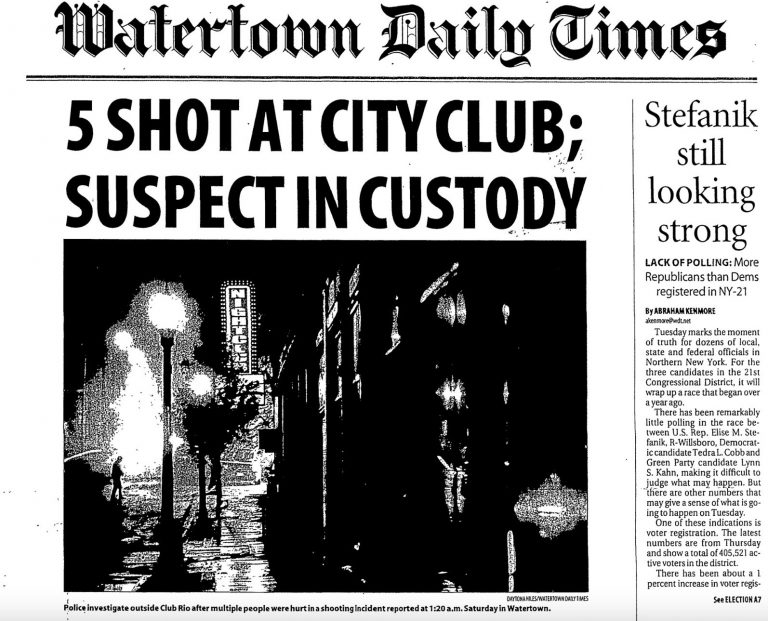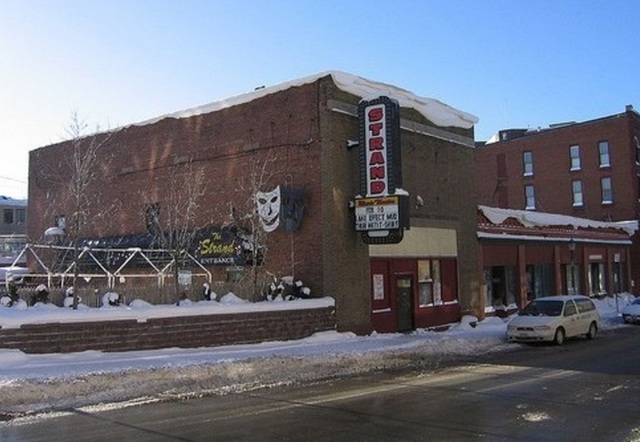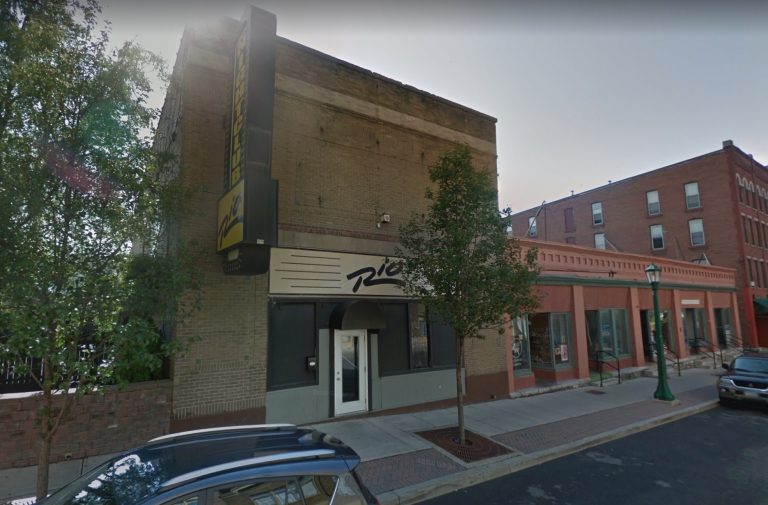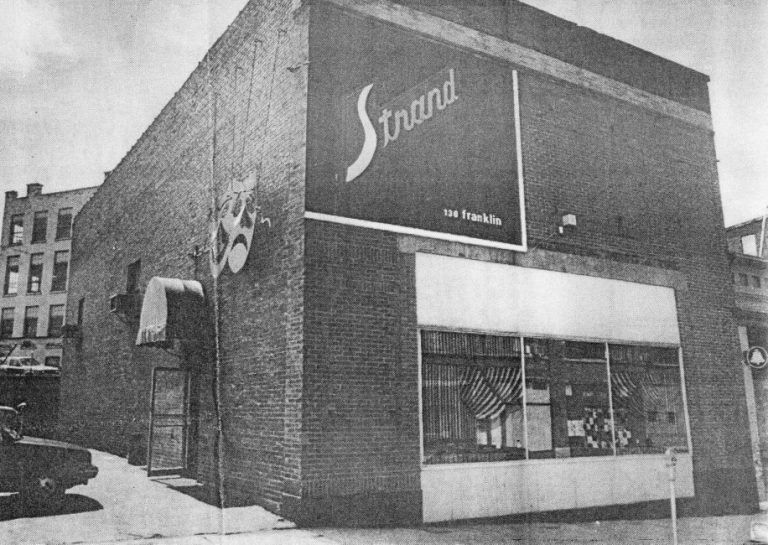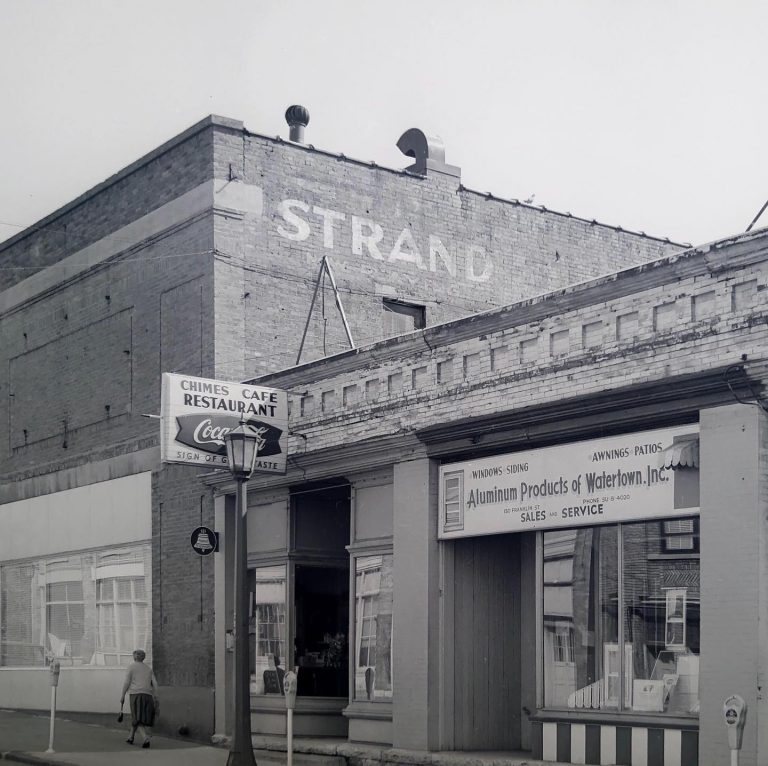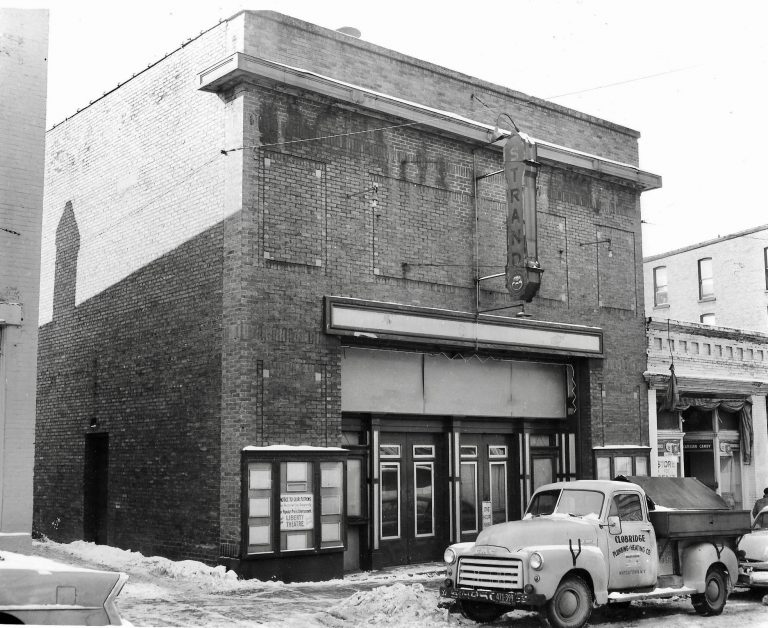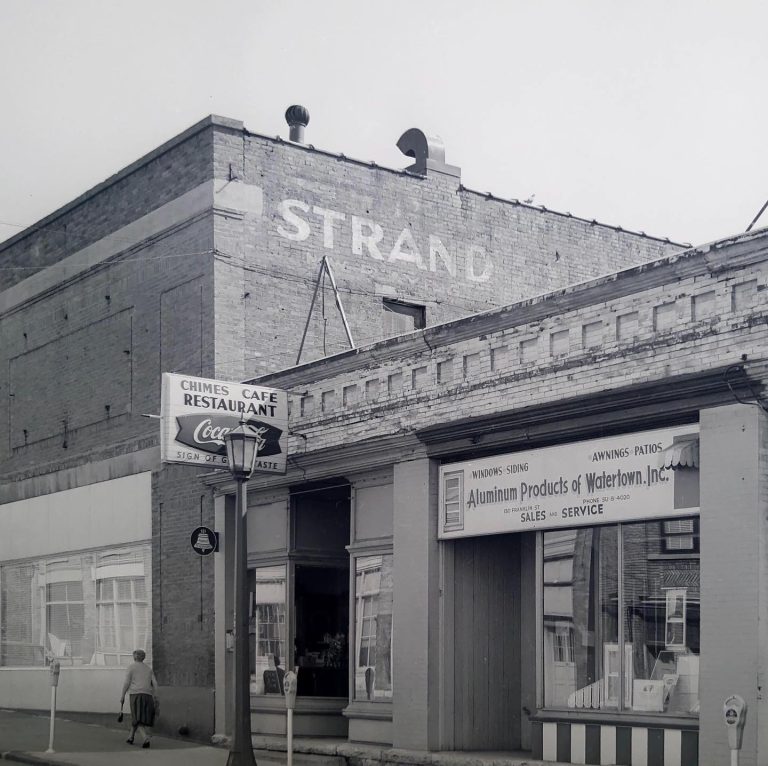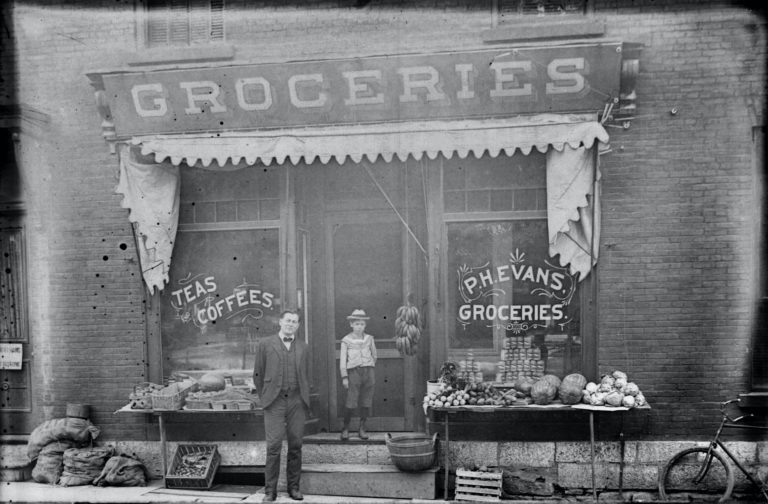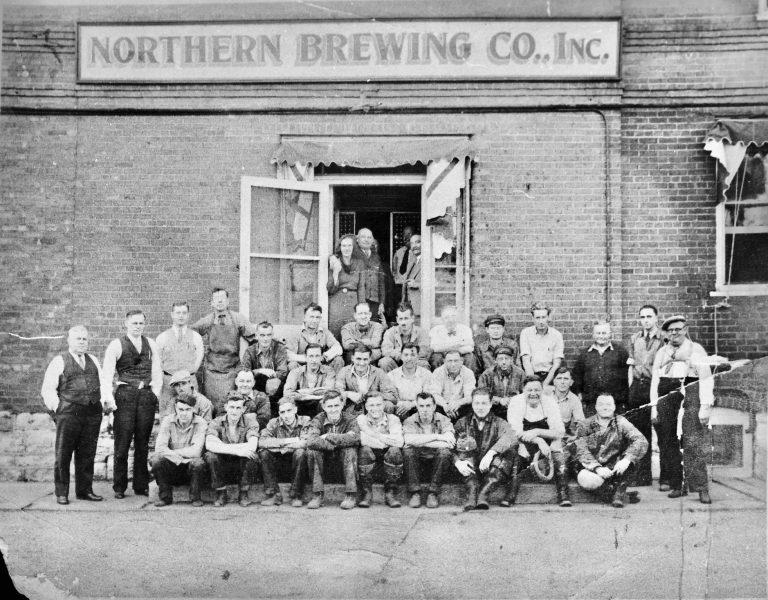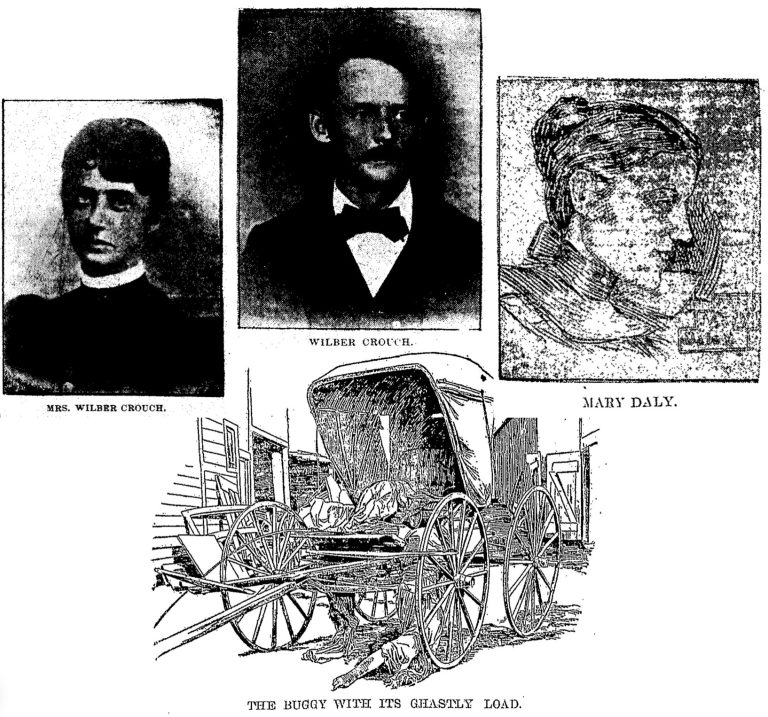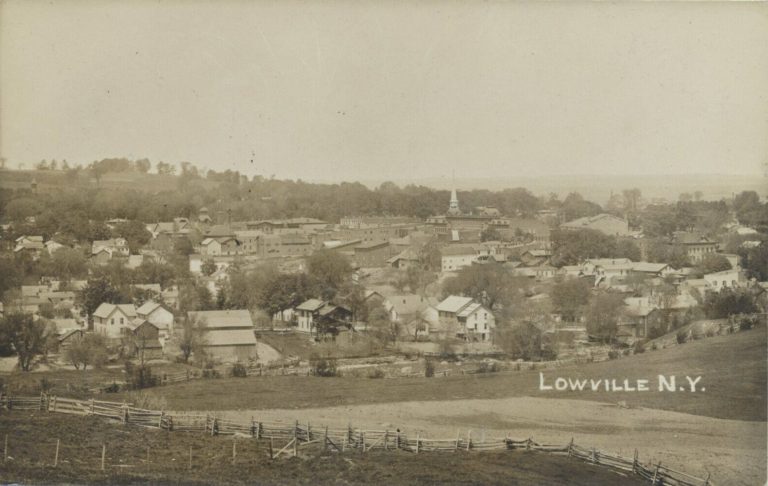The Strand Opened in 1914 as a Modern Theater on Franklin Street
Watertown, NY, would see the opening of The Strand, a “new moving picture theatre” on lower Franklin Street, on Christmas 1914, three years before the Olympic Theater on lower State Street and about seven years after the Orpheum opened on Polk Street and eight after Wonderland in Hotel LeRay. It would be the first and only theatre opened in the city with the sole purpose of showing movies at the time. Seating would be in two locations totaling 500 patrons, 370 on the main floor and 130 in the gallery.
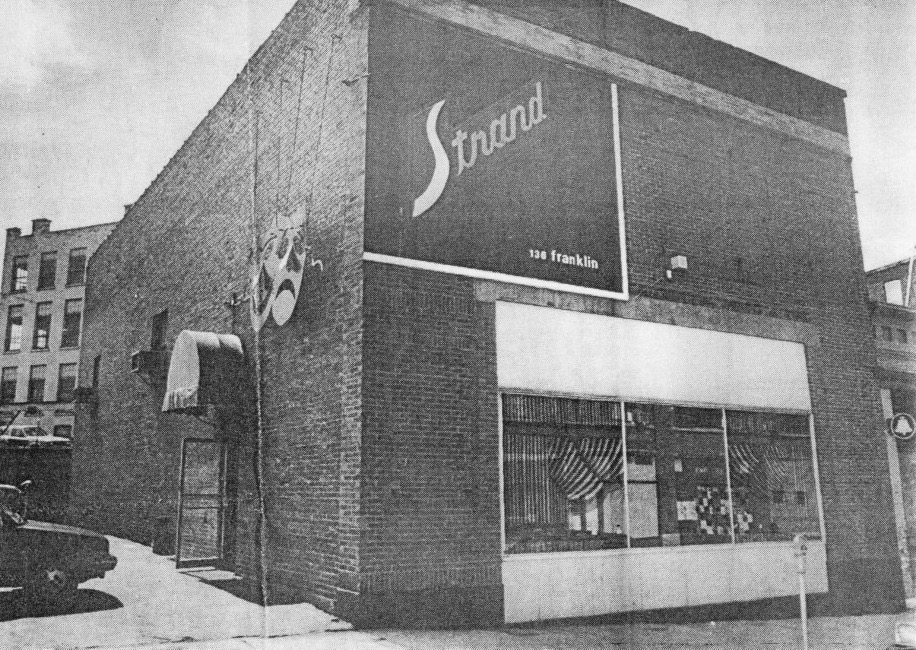
Prior to The Strand being erected, the lot was home to the Franklin Street House which was said to have been one of the oldest buildings in Watertown at the time. The new theater, which was eventually named The Strand, was initially referred to as The Majestic. Attorney John C. Lamon would purchase the Franklin Street House and have the new theater built in its place with another party managing it.
The Strand would offer a variety of modern attributes not yet introduced to the local public. The building was equipped with a mechanical ventilation system – something that’s taken for granted in today’s world, but back then was a major gripe amongst older buildings and one of the factors that led to the construction of the new City Hall and introduced into schoolhouses during this time as a major upgrade.
Another feature was the film projector machine that was motor-driven rather than dependent on hand cranking, which many theaters required during the era. The new machine, considered the finest in the part of the state, allowed for a much smoother viewing experience as a result.
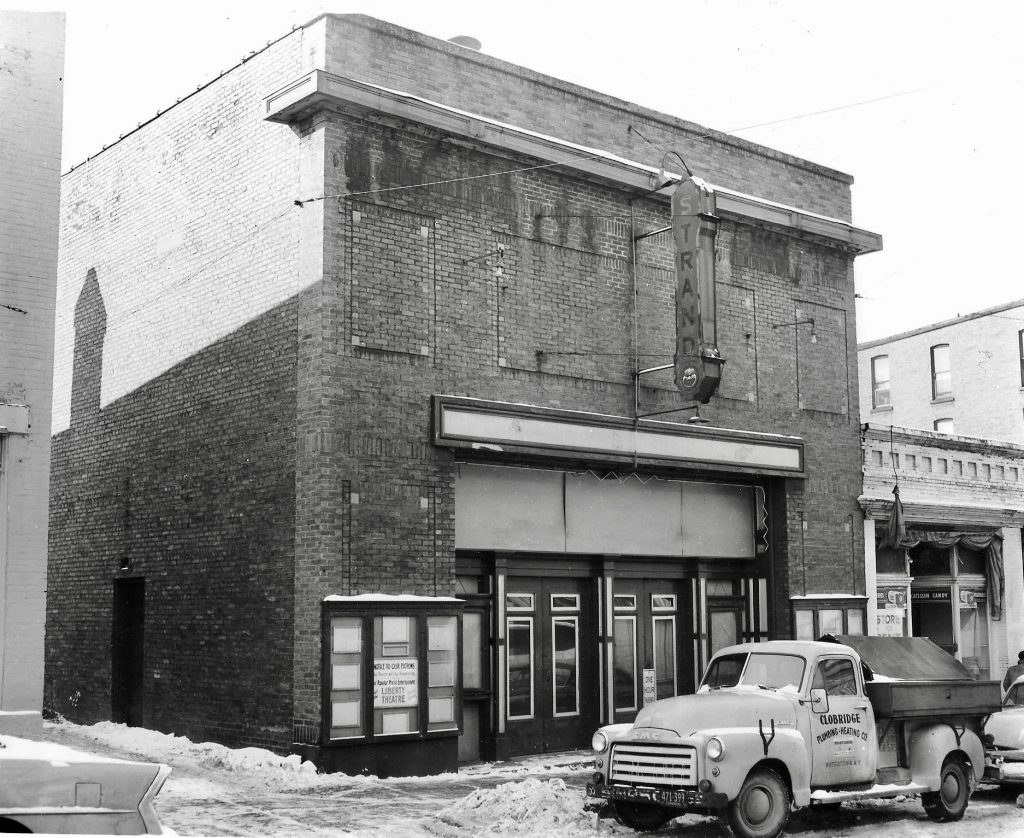
The first motion picture to be shown at The Strand was “The Nightingale,” starring Ethel Barrymore in her first starring appearance in a motion picture, reprising her role after her stage success of the same title. Like most theaters of its era, The Strand on Franklin Street would also feature an orchestra pit due to the films being silent. In The Strands’ beginnings, a five-piece orchestra would be conducted by Harry Stowell, one of the two managers along with Floyd Clark, and boast some of Watertown’s finest musicians.
The Watertown Daily Times would review The Strand’s opening performance in their December 26th edition, noting—
The theater itself is without doubt the finest one of its kind in the city. It is high and airy. It is very simply finished in mission style with modern, indirect lighting. The seats are comfortable. The entrances and exits are well arranged and the screen is so arranged and the screen is so arranged that it is comfortable to eyes in practically all parts of the house. There is no stage in the theatre, whatever, and the screen is elevated.
The fact that there was no stage was a disappointment to many and a fact rejoiced over by others. Some said that it was too bad that some vaudeville could not be run, while others said that they were glad cheap vaudeville was permanently eliminated. The orchestra kept up a running musical program of good quality throughout the performance.
If the people who crowded the house at the opening may be taken as an example of the crowds to follow, The Strand will be patronized by a high grade trade.
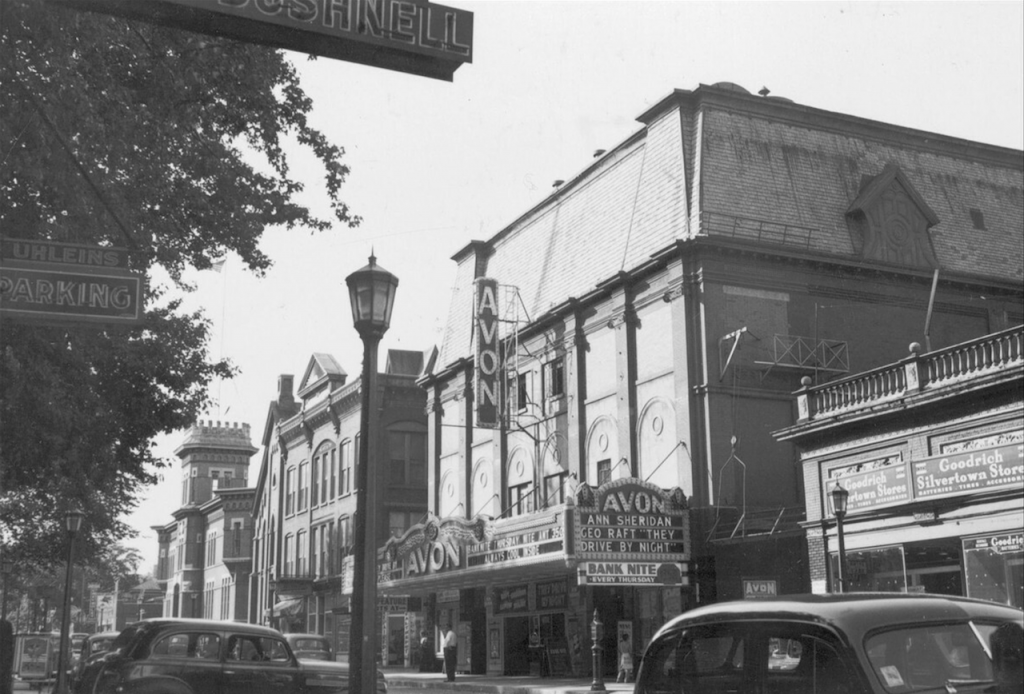
It wouldn’t take long for competition to heat up between The Strand and other theaters. Two months into the business, Stowell believed he had paid for exclusive rights to show a movie in February, charging a higher price for its exclusivity, only to see the Papayanakos brothers advertise the same movie for the following week at the Lyric Theater for normal admission. The Times would note the debacle’s impact on Watertown’s theater-going—
The movie situation in Watertown has now become still more complicated by the reduction of prices at the City Opera House. This case of war recalls the difficulties that once arose and continue to arise, much to the benefit of the “movie” patrons of the city, in the war between “Joe” Hines and the Papayanakos (James and Alex ) combination.
In May of 1915, Stowell bought his partner Clark out with the intention of running the place himself and expanding it to accommodate 1,000 patrons and also include Vaudeville acts. This wouldn’t happen, at least under Stowell.
After about a year of managing The Strand, new management under James Baker and George Waldo would beat out plans by Michael Williams to assume ownership of the lease for the theater. Baker and Waldo would renovate the interior and expand the seating with the intent to show only feature films from the best companies. Larger crowds than anticipated would attend the opening of the newly renovated theater to the tune of 700 patrons.
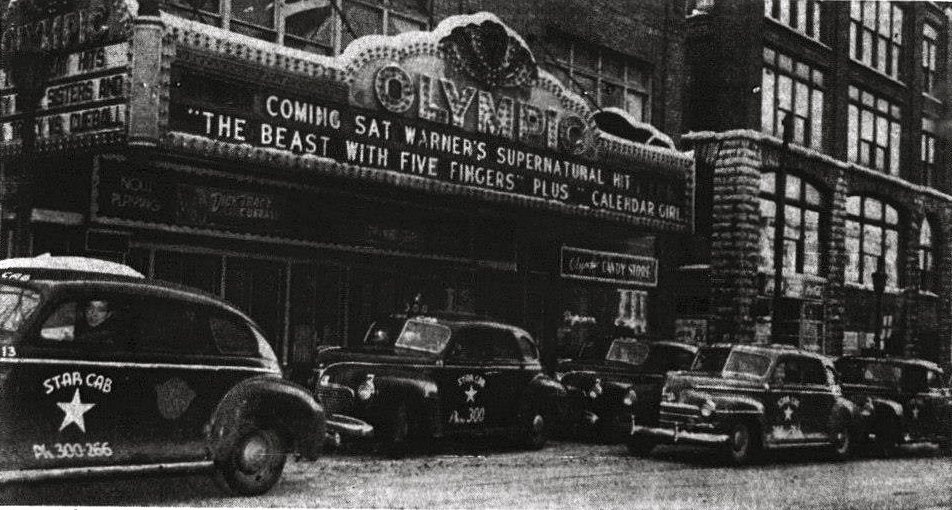
Movie House Wars And An Unlikely Pivot That Was Unsuccessful
In 1922, the war of the movie houses heated up after the Papayanakos brothers sold their holdings (The Lyric, Olympic, and the Antique (later Liberty) Theaters to Robbins Amusement Company. The Strand and the now-branded Avon Theater were part of Nova Operating Co.
With a lot of pomp and circumstance, The Times noted as a “stream of rhetoric reminiscent of carnival hawking,” Nova insisted it was going to renovate The Strand to be equal with any theater in the city. Two months before unveiling the new renovations, a spokesman announced Nova’s plant to turn it into a children’s theater instead.
It lasted less than a year.
In 1923, it would become a nickelodeon and show children’s films on Saturday afternoons. This would last for not quite five years when its management once again changed from Fred Perry to Peter C. Vournakis in 1928. Mr. Vournakis would purchase the building from Mr. Lamon that year and purchase the Liberty Theater on Court Street for five years. He would continue operating both until closing The Strand in 1956 to focus his interests on the Liberty Theater.
The following year, the building would be purchased by the Agricultural Insurance Company, which had plans to use it as office space. Instead, the building would sit vacant for 21 years.
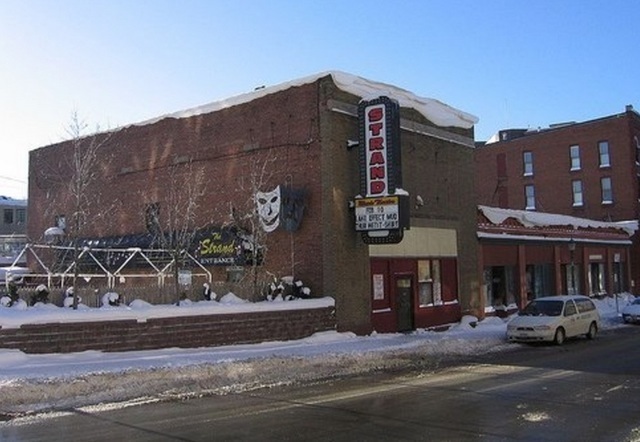
The Late 1970s and 80s Bring A Night Club To Lower Franklin Street
After a long-dormant, vacant period, The Strand was purchased by Carl B. Martin, Jr. in 1978. Martin would convert the theater into The Strand Night Club, removing seats, installing a raised bar on the main floor and balcony, and building a stage for live music performances.
After an unsuccessful attempt to turn The Strand into a juice bar in 1984, Mr. Martin would close it and, once again, the building would sit dormant, this time for three years. In 1987, Mr. Martin would sell it to Pearson Brothers Management, comprised of Thomas J. and William M. Pearson, who would re-open The Strand as a nightclub and host live rock bands.
The Strand would remain an active scene in Watertown before what’s old becomes new again, as in The “New” Strand being announced in 2001, complete with “Tiki Island.” For the next seven years, The Strand would continue to be a hot spot… in more ways than one. The number of incidents, altercations, the owners, 3M2P Inc., twice falling behind on taxes, and a drunk driver going the wrong way down Goodale Street, striking patrons, and leaving the club all generated bad press – the last causing it to lose its liquor license. In December 2008, the owners would put The Strand up for sale.
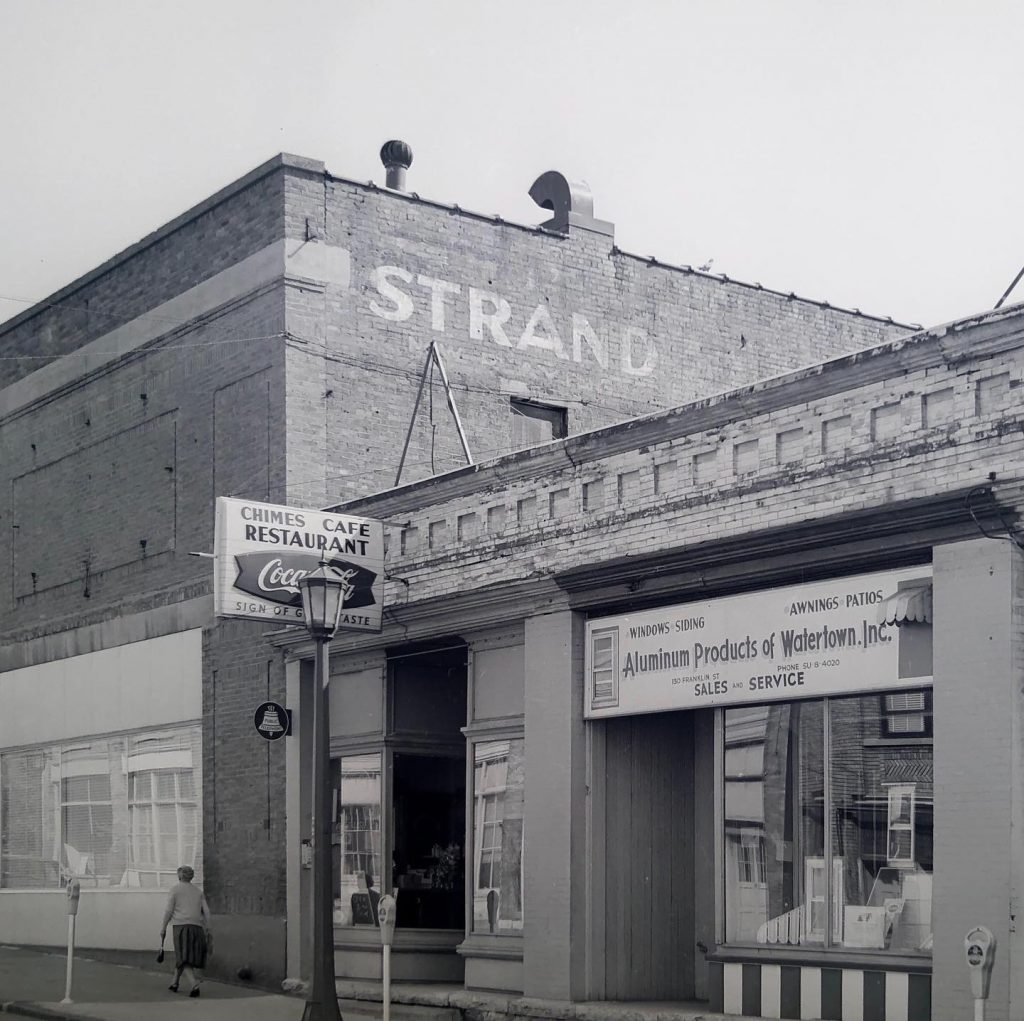
The following month a dance club exclusively for high school students, Club Safari, moved into the facilities still owned by 3M2P Inc., recalling days when The Max opened in the 1980s at Watertown Bowl. The venture would be short-lived, however, as the property would go back onto the city’s tax sale notice for the next several years.
In April of 2014, The Strand would become Club Rio and cater to the nightlife crowd again. With a remodeled interior, the owners, The Times noted as being the same as before, hoped to keep the clientele associated with bad publicity out this time around. For the most part, the headlines and bad press disappeared until 2017, when a large “unruly group” caused a disturbance at Club Rio. Little did anyone suspect what was soon to come.
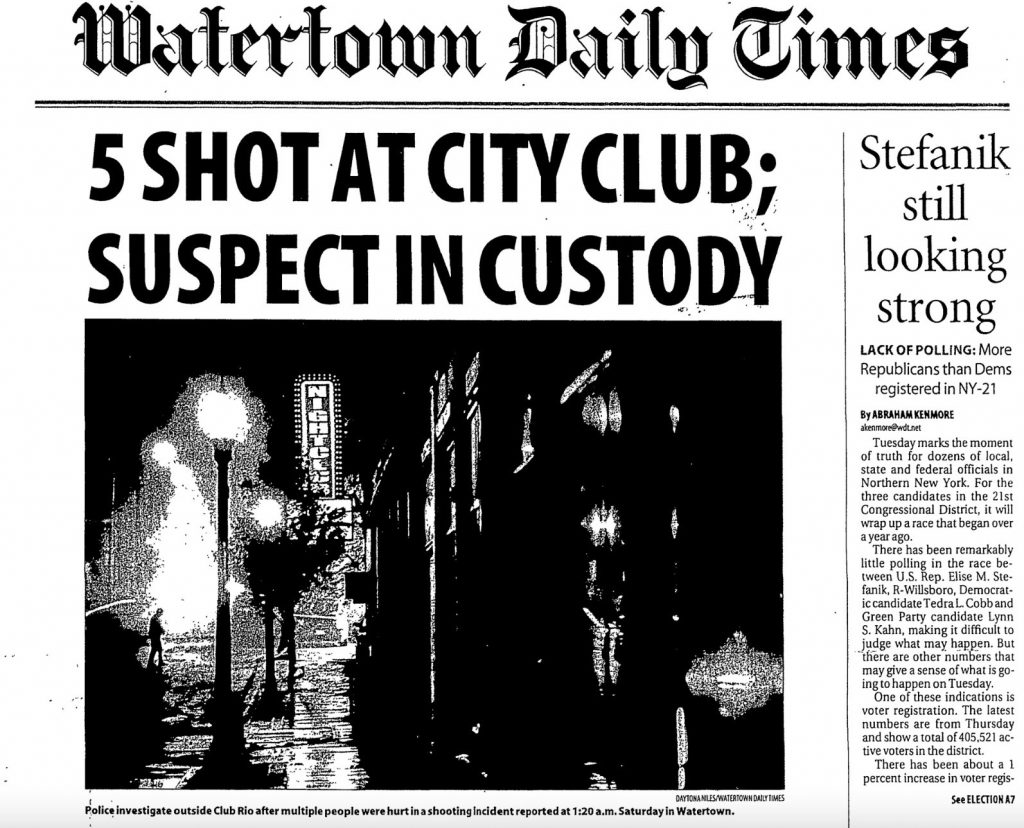
2018 Club Rio Mass Shooting
For those waking up to the news on a Sunday morning in early November in 2018, reading, or hearing about a mass shooting in Watertown seemed more like a surreal nightmare than reality. Five people were shot at Club Rio, treated, and then released by the following afternoon. Four of the victims were Fort Drum soldiers.
Julio E. Landron-Sanchez, who had been staying in the city with a brother, was detained shortly after running away from Police arriving on the scene responding to gunshots at 1:20 a.m. Landron-Sanchez was charged and arraigned in connection with the shootings.
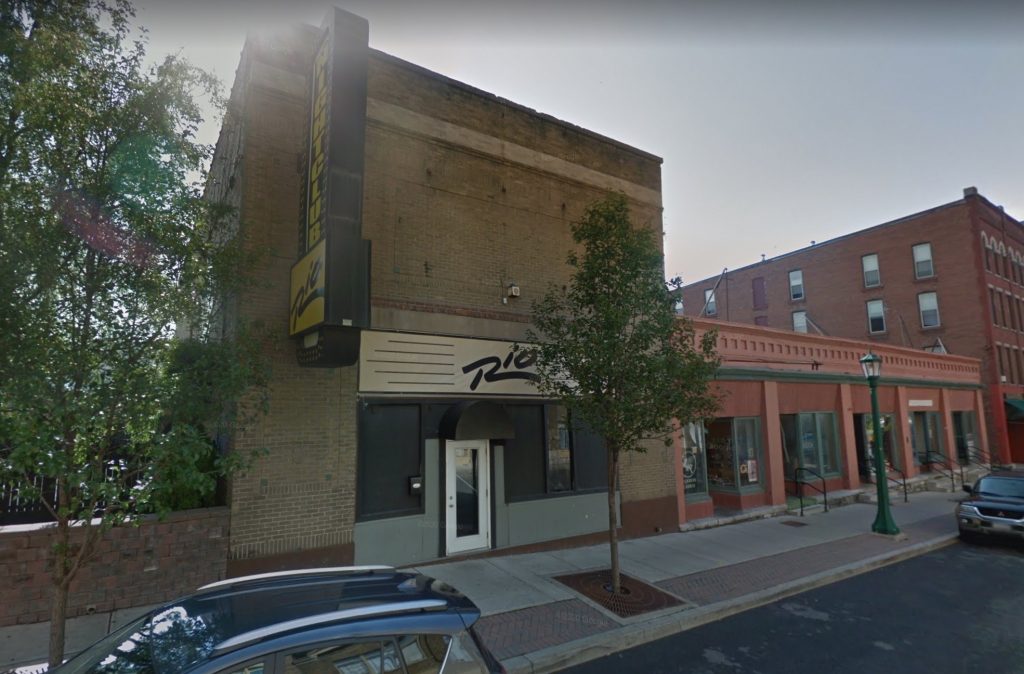
The very next day, David C. Garlock, the club’s owner since 2015, decided to close the place. As printed in The Times–
Mr. Garlock said he had never imagined a shooting incident could “happen in your own backyard,” referencing recent shootings beyond at the Tree of Life Synagogue, Pittsburgh and the First Baptist Church in Jeffersontown, KY.
“The reason I started Club Rio in the first place was to make it a safe, comfortable, and fun place for soldiers and young people in Watertown… so they could go and have some fun like most of us did when we were young,” he said. “Unfortunately, it seems like that has become less and less possible.”
The Future of Lower Franklin Street Looks Bright
In the fall of 2021, Neighbors of Watertown, located in the same block on Franklin Street, was seeking to purchase the former Strand and Club Rio as well as other storefronts in the vicinity from Jake Johnson, who had purchased the properties in 2019 and 2020. Some of the properties had long been eyed for the city’s $10 Million Downtown Revitalization Initiative program, but they had changed ownership over the previous years.
The following month, the deal was closed, and it was announced in The Times that Neighbors of Watertown was partnering with Jefferson Community College to create a downtown entrepreneur education center. The Times would report–
The goal of the project is to create an educational hub for aspiring entrepreneurs and small businesses, President Stone said. Watertown’s Small Business Development Center will move from the JCC campus to the new facility.
The partners will use the entire $2.5 million in DRI money that JCC was awarded four years ago to redevelop the buildings for the downtown educational center.
Coincidentally, Neighbors closed on the deal Wednesday to purchase Club Rio and the adjoining building from local real estate developer Jake Johnson.
Work on the project is scheduled to be completed in 2023.
